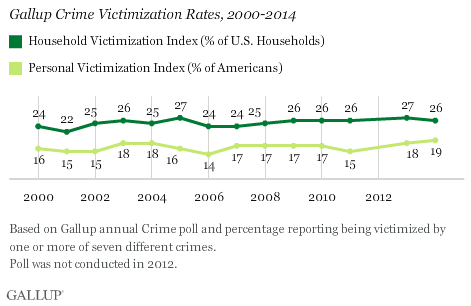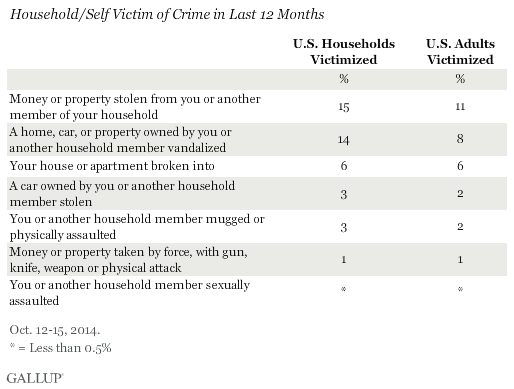A little over a week ago, I wrote about this site being hacked. Since then there have been several more successful intrusions and one of these deleted a significant amount of files. This has kept me busy, working with the companies that provide security and backup services for this site, and adding even more security to protect me against these malicious criminals. The site is back and running with all intact. All of this has entailed a lot of time, energy, and money to keep PopUpBackpacker in existence. Given that this site has a small audience, is not influential, and has a limited scope, one would wonder (as I have) if all this aggravation is worth the effort. I seriously pondered this same question.
Yes, it is worth the effort to keep this site running and fight the hackers for one simple reason: it is MINE. Now you may think this sounds like what a child would say when he doesn’t want to share his toys with other children. Most parents scold the child and tell him he must share his toys with others who want to play with them. And herein is the problem, we are teaching our kids that his property (toys) isn’t really his; that anyone who wants them has a right to them. Philosophically we are telling our children that anyone who want to make a claim has a mortgage on their life.
This website is mine. I pay to register the name, I pay to have it hosted on a server, I pay to back it up, and I pay to ensure there are several layers of security. I have spent almost 6 years writing articles, and have uploaded thousands of pictures I have taken with my own equipment. Whether or not the readers think there is any value to this site is immaterial. What matters is no one is entitled to any of this, and no one has the moral right to deprive me of its use. For that reason alone, it is worth fighting these criminals.
Where do all these hackers come from? They come from all over the world and now I can track all the hacking attempts, which number several hundred per week, and from what country they originate. The US and China are about equal in the number of attempts, followed by Western Europe and Indonesia. Interestingly, there has only been one attack from Russia.
But let’s forget my website problem and take a look at crime in the US.
Crime in the U.S.
In 2014 the Gallup organization released its annual Crime Poll and here are some excerpts:
“Since 2000, with the exception of 2012, Gallup has asked Americans in its annual Crime poll to say whether they or anyone in their households have been the victim of seven different crimes — burglary, property theft or larceny, car theft, vandalism, robbery, physical assault and sexual assault. Gallup’s household crime victimization index represents the percentage of Americans who say that they or a member of their household was a victim of one or more of these crimes in the last 12 months. The personal crime victimization index is based on the same summary, only reduced to those who say each crime happened to them personally.”
This is mind boggling! Each year 25% of US households report they have been a victim of a crime. This means that in their lifetime almost every single American will be the victim of a crime. How can this be? How can we, the citizens, allow this to happen?
The report goes on to document the majority of these crimes involve property, not violent crimes. “Of these seven crimes, property theft (15%) and vandalism (14%) are the most common for U.S. households, followed by burglary (6%). The other crimes are rare, with only as many as 3% saying each occurred to a household member in the last 12 months.”
If you, the reader, survey all your friends and family the odds are fairly high that nearly everyone has been a victim of crime during their lifetime. Part of this problem is we don’t attach the importance to property rights that our Founding Fathers did, and we have a system of justice that is broken.
Where did our Founders get their ideas about property rights?
Three intellectuals of the Enlightenment had a profound influence on our Founding Fathers and their ideas about the natural rights of man were integral to the content of our Founding Documents:
John Locke
“The state of nature has a law of nature to govern it, which obliges every one: and reason, which is that law, teaches all mankind, who will but consult it, that being all equal and independent, no one ought to harm another in his life, health, liberty, or possessions… (and) when his own preservation comes not in competition, ought he, as much as he can, to preserve the rest of mankind, and may not, unless it be to do justice on an offender, take away, or impair the life, or what tends to the preservation of the life, the liberty, health, limb, or goods of another.”
Charles Montesquieu
“Let us therefore laydown a certain maxim: that whenever the public good happens to be the matter in question, it is not for the advantage of the public to deprive an individual of his property – or even to retrench the least part of it by a law or a political regulation”
William Blackstone
“So great moreover is the regard of the law for private property that it will not authorize the least violation of it – no, not even for the general good of the whole community.”
How important were property rights to our founders?
“Property must be secured or liberty cannot exist.” Discourses on Davila, John Adams, 1790
Additional quotes:
“Government is instituted no less for the protection of the property than of the persons of individuals.” Federalist 54, James Madison
“Among the natural rights of the colonists are these: First a right to life, secondly to liberty, and thirdly to property; together with the right to defend them in the best manner they can.” The Rights of Colonists, by Samuel Adams, 1772
“No power on earth has a right to take our property from us without our consent.” Address to the People of Great Britain, drafted by John Jay and approved by the First Continental Congress on 21 October 1774
“The moment the idea is admitted into society that property is not as sacred as the law of God, and that there is not a force of law and public justice to protect it, anarchy and tyranny commence.” Defence of the Constitutions of the United States, by John Adams, 1787
“It is sufficiently obvious, that persons and property are the two great subjects on which Governments are to act; and that the rights of persons, and the rights of property, are the objects, for the protection of which Government was instituted. These rights cannot well be separated. The personal right to acquire property, which is a natural right, gives to property, when acquired, a right to protection, as a social right.” Address at the Virginia Convention, James Madison, 1788
“To take from one because it is thought that his own industry and that of his father’s has acquired too much, in order to spare to others, who, or whose fathers have not exercised equal industry and skill, is to violate arbitrarily the first principle of association – ‘the guarantee to every one of a free exercise of his industry and the fruits acquired by it.’ ” Thomas Jefferson in a letter to Joseph Milligan, 1816
“The true foundation of republican government is the equal right of every citizen in his person and property and in their management.” –Thomas Jefferson in a letter to Samuel Kercheval, 1816
To our founding fathers property was as important as life and liberty… without property rights there cannot be freedom or liberty. Rights are absolute. In order to protect these rights Jefferson captured the essence in the Declaration of Independence:
We hold these truths to be self-evident, that all men are created equal, that they are endowed by their Creator with certain unalienable rights, that among these are life, liberty and the pursuit of happiness. That to secure these rights, governments are instituted among men, deriving their just powers from the consent of the governed.
What happened to our property rights?
So if property rights were so sacrosanct to our Founders, why is our property under attack today? What has changed in less than 250 years? The answer is crystal clear: we have lost sight of our unalienable rights and have mistakenly substituted the rights of the individual with the so-called common good; replacing individual rights with collectivism. America has replaced “individual rights” with so-called “human rights” that twist justice to give criminal rights and take away the right of their victims.
With a collectivist mentality, criminal activity against property takes on a new meaning: they become “crimes against society.” Criminals are no longer considered immoral, but are products of their environment. When property is no longer revered, then crimes against property become crimes against society’s norms or values. Do not become confused with this thinking or misuse of words.
Depriving another of their property is not a social right that is broken, but an individual right that has been violated. Depriving an individual the full use of his property is paramount to depriving him of his liberty – just like a physical attack against a person; robbery is an act of violence. In either case, the criminal has initiated force against an individual not society. In a truly free society, those activities defined as criminal are those involving the use of force. And in a free society it is wrong for anyone to initiate force against another.
Our broken criminal justice system
Today our prisons are full of people incarcerated for drug offenses. Nearly 50% of our prison population has been convicted and sent to jail for drug related charges, actions that shouldn’t be considered crimes. I am wholeheartedly against drug abuse, but it is the right of any person to abuse drugs if they choose to do so, while we are often slapping real criminals, who initiated force against others (remember robbery is a forceful act), with minor penalties and returning them back to commit more crimes.
There is one word to describe these criminals, who prey on others by the use of force: savages. When men act as savages in a civilized society, we cannot deprive them of their consequences – in other words, the consequences for initiating force against others must result in a painful consequence, i.e. they deserve a penalty commensurate to their crime and to correct the damages done to the victim. Regarding penalties: they must match the severity of the crime. The punishment for stealing a UPS package off someone’s porch cannot be the same as murdering someone. In either case the criminal must be penalized, he must suffer consequences – for the only object of the penalty is retribution. The concept of rehabilitating or reforming criminals is of uncertain effect. The purpose of retribution is not to prevent a future crime, but to punish the one committed; that and nothing more. Should the criminal continue to break the law once released, then repeat offenses demand more severe penalties, and eventually, if the individual refuses to obey the law, we may have to remove him from society for the rest of his life – that choice is entirely up to the criminal.
To ensure we protect our individual liberties we must understand and act on these principles. We must participate in government by voting, by becoming involved in the issues that try to limit our rights, and by serving on juries and applying the law in an objective manner. And most importantly, we can’t give up and give in. We have to fight back, even if it seems the time and energy aren’t worth the effort.


